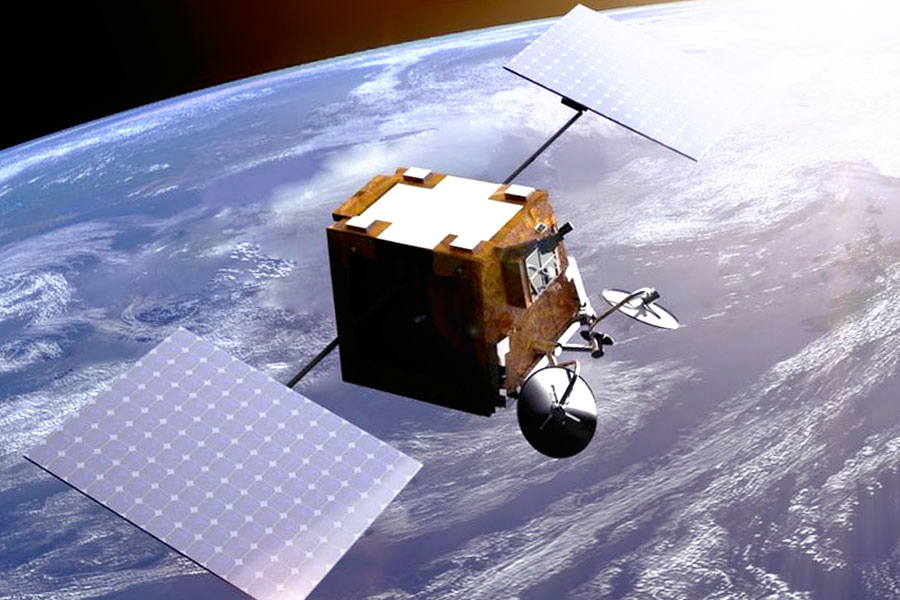OneWeb: how a British company plans to revolutionize the Internet
3rd Mar 2020
Since its creation, satellite Internet has not become available to the public. Its high cost made the tech a backup option, necessary only in extreme cases. British company OneWeb has done everything in its power to change this situation and revolutionize the Internet.
OneWeb history: test ‘constellation’ and first launches
The company was founded in 2014 by an American telecommunications entrepreneur Greg Wyler. Originally, it was called WorldVu. The key goal of the project is to make satellite Internet available in every corner of the world. Airbus Group, Qualcomm, Cola-Cola, and Virgin Group have all invested in this bold mission.
In June 2015, OneWeb signed an agreement with the Russian state space agency Roskosmos. The first stage of their collaboration aimed at launching 21 satellites into orbit. The total number of satellites carried on Soyuz-2 rockets will be 672. This number should be enough to ensure medium coverage and Internet access from any spot on the planet.
The first launch included six satellites that went into orbit from the Kourou launch site on 27th February 2019. The primary goal of this launch was to test the equipment. The result exceeded all expectations: Internet speed exceeded 400 Mbps, while the delay time was only 40 milliseconds. This data compares to the high-end features of modern cable and mobile Internet.
The second batch was launched quite recently, on February 7, 2020. This time, the enterprise launched 34 satellites from the Baikonur launch site in Kazakhstan.
OneWeb further plans
The management team at OneWeb have publicly stated that they won’t halt their ambitions at 21 launches. The long term plan is to launch about 2 thousand satellites that would form a huge constellation. Airbus corporation manufactures satellites, and one device costs about a million dollars.
OneWeb needs an extensive network of satellites to provide high-speed Internet access to the entire globe. The developer wants to provide high-speed web access to ships and aircraft, as well as in remote areas where fiber-optic communications are not possible.
Management’s further plans are rather large-scale: by the end of 2020, they plan to start working in the Arctic. According to a recent statement, they plan to cover 48% of the territory – areas above the 60th parallel of the northern latitude that belong to Norway, Finland, Canada, Russia, and the USA. By the beginning of 2021, the region should be fully covered.
An estimated total connection speed should be 375 Gbit / s.
A product demonstration for the first customers is scheduled by the end of 2020. Full-scale operations are planned for the beginning of 2021. The latter ones presuppose ensuring global services for the maritime, aviation, government and corporate sectors.
Today, OneWeb has already started manufacturing satellite modems. They are designed to receive data at speeds of up to 400 Mbit / s and transfer up to 30 Mbit / s. The enterprise has already signed contracts with a number of telecommunication companies, including British Talia and Italian Intermatica.
The competition never sleeps
However, OneWeb has a major competitor that may yet overtake the British enterprise, carving themselves a large share of OneWeb’s prospective market. The competitor is Elon Musk’s SpaceX. The largest aerospace owner has truly ambitious plans: 12000 satellites in 7 years. Besides, Musk has a major advantage – SpaceX private Falcon 9 FT launch vehicles. Their carrying capacity is seven times higher than those of Soyuz-2, and delivery cost for 1 kg of cargo is currently the cheapest in the market.
But what’s truly important is the result. Hopefully, both companies will learn to peacefully co-exist rather than get stuck in petty rivalry – so we could finally enjoy an affordable high-speed global Internet.






Thank you for your comment! It will be visible on the site after moderation.